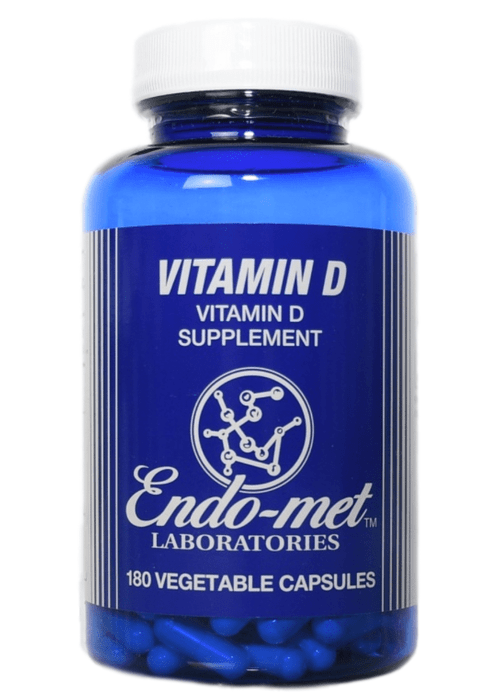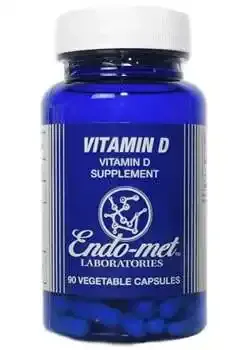Hair analysis and Vitamin D3
Hair Analysis and Vitamin D3: Unlocking Your Optimal Health
In recent years, there's been a growing awareness about the importance of personalized health assessments, especially through innovative methods like hair analysis. Coupled with targeted supplementation such as Vitamin D3, this approach allows individuals to address specific nutrient deficiencies and optimize overall well-being. Among the myriad of vital nutrients, Vitamin D stands out due to its widespread deficiency and critical roles in maintaining health.
The Prevalence of Vitamin D Deficiency
Vitamin D deficiency has become a global health concern. According to numerous studies, a significant proportion of the population doesn't get enough of this essential vitamin. Factors contributing to this include limited sun exposure, especially in urban environments; the use of sunscreen, which blocks UV rays necessary for Vitamin D synthesis; dietary habits lacking in vitamin D-rich foods; and certain health conditions that impair absorption.
Research indicates that over 40% of adults in some regions have insufficient vitamin D levels, with even higher rates among certain demographics such as the elderly, individuals with darker skin pigmentation, and those living in northern latitudes. Children, adolescents, and pregnant women are not exempt from deficiency risks.
Why Is Vitamin D So Crucial?
Vitamin D is often called the "sunshine vitamin" because our skin produces it when exposed to UVB rays from sunlight. It functions as a hormone, influencing numerous physiological processes:
1. Bone Health and Mineral Metabolism
Perhaps the most well-known role of Vitamin D is its regulation of calcium and phosphorus levels in the blood. It promotes intestinal absorption of these minerals, which are vital for healthy bone formation. Without adequate Vitamin D, bones can become brittle and prone to fractures, leading to conditions such as rickets in children and osteomalacia (softening of bones) in adults.
2. Immune System Regulation
Vitamin D plays a pivotal role in modulating the immune response. It enhances innate immunity by stimulating the production of antimicrobial peptides such as cathelicidins and defensins, which help fight off bacteria, viruses, and fungi. Adequate levels are associated with a lower risk of infections and autoimmune diseases.
3. Cardiovascular Health
Emerging research suggests that Vitamin D influences cardiovascular health by regulating blood pressure, reducing inflammation, and improving endothelial function. Deficiency has been linked to increased risks of hypertension, heart disease, and stroke.
4. Mental Health and Cognitive Function
Vitamin D receptors are present in various brain regions, and deficiency has been associated with mood disorders like depression, anxiety, and cognitive decline. Maintaining optimal vitamin D levels may support mental well-being and cognitive performance.
5. Blood Sugar Regulation and Diabetes Risk
Some studies indicate that Vitamin D influences insulin sensitivity and pancreatic beta-cell function, potentially reducing the risk of type 2 diabetes. Supplementing with Vitamin D may help stabilize blood sugar levels in some individuals.
6. Skin and Hair Health
While more research is needed, Vitamin D's role in skin cell growth and repair suggests it could influence skin health and hair growth. Some hair loss conditions have shown associations with Vitamin D deficiency.
7. Inflammation and Autoimmune Conditions
Chronic inflammation underpins many diseases, including rheumatoid arthritis, multiple sclerosis, and inflammatory bowel disease. Vitamin D’s immunomodulatory effects may help reduce inflammation and manage autoimmune responses.
Hair Analysis: A Personalized Approach to Vitamin D and Overall Nutrition
Before embarking on any supplementation regime, understanding your unique nutritional needs is essential. Hair analysis offers a non-invasive, comprehensive method to assess mineral and nutrient levels, including Vitamin D, in the body.
How Does Hair Analysis Work?
Hair analysis involves collecting small hair samples from the scalp, which are then analyzed in specialized laboratories. These tests can detect levels of various minerals and trace elements, providing insights into deficiencies or excesses. Since hair mineral content reflects long-term nutritional status—over months rather than days—it allows for a more accurate assessment of chronic deficiencies.
Why Use Hair Analysis for Vitamin D?
While blood tests (serum 25-hydroxyvitamin D levels) are the standard for measuring Vitamin D, hair analysis can complement this by revealing mineral imbalances and other nutrient deficiencies that impact overall health. It can uncover underlying issues that may not be apparent through blood tests alone, such as heavy metal accumulation or mineral imbalances affecting Vitamin D metabolism.
Benefits of Hair Analysis:
- Non-invasive: No blood draws or invasive procedures.
- Long-term perspective: Reflects mineral status over several months.
- Holistic health insights: Provides data on multiple nutrients simultaneously.
- Personalized supplementation: Enables tailored interventions based on actual needs.
Integrating Hair Analysis with Vitamin D Optimization
Once deficiencies are identified, targeted supplementation becomes more effective. For example, if hair analysis indicates low zinc or magnesium levels—both of which are cofactors in Vitamin D metabolism—addressing these deficiencies can enhance Vitamin D utilization and overall health.
The Role of Supplementing Vitamin D3
While sunlight and diet are primary sources, supplementation is often necessary, especially in today's indoor-centric lifestyles. Vitamin D3 (cholecalciferol) is the most bioavailable form and effective for raising serum Vitamin D levels.
Recommended Daily Intake and Dosing
The minimum daily requirement for Vitamin D varies among individuals, but most experts agree that adults need approximately 5,000 IU daily to maintain optimal levels, particularly when sun exposure is limited. For children, lower doses are appropriate, but consulting with a healthcare professional is advised for tailored recommendations.
Why 5,000 IU?
Research indicates that higher doses, such as 5,000 IU daily, are safe for most adults and more effective in correcting deficiency than the standard 400-800 IU often found in multivitamins. However, excessive intake can lead to toxicity, so monitoring levels is essential.
Risks of Overdose
Vitamin D is fat-soluble, meaning excess amounts can accumulate in body tissues, leading to hypercalcemia—a condition characterized by elevated calcium levels causing nausea, kidney damage, and other health issues. Therefore, it’s crucial to balance supplementation with individual needs, ideally guided by hair or blood testing.
- Sources of Vitamin D
- Sun Exposure: 10-30 minutes of midday sunlight several times a week.
- Dietary Sources: Fatty fish (salmon, mackerel, sardines), egg yolks, fortified dairy products, and mushrooms.
- Supplements: Vitamin D3 capsules or drops.
Noteworthy: While eating sardines 3-4 times weekly can provide a significant amount of Vitamin D, it's essential to consider other nutrients present in sardines, such as omega-3 fatty acids, calcium, and protein, making them an excellent dietary choice.
Sardines vs. Supplements: Which Is Better?
Eating sardines regularly offers multiple health benefits, including:
- High-quality protein
- Omega-3 fatty acids
- Calcium (if eaten with bones)
- Vitamin D
However, concerns about mercury content in some fish should be considered. Sardines generally have low mercury levels compared to larger predatory fish like tuna or swordfish.
Supplements provide a controlled dose of Vitamin D, ensuring adequate intake without the need for frequent fish consumption. They are especially useful for individuals with limited access to fresh seafood, dietary restrictions, or absorption issues.
Balancing Vitamin D Intake: The Importance of Personalized Supplementation
While it’s tempting to aim for high doses of Vitamin D, indiscriminate supplementation can be risky. Excess Vitamin D can cause hypercalcemia, kidney stones, and other health problems. Therefore, knowing your baseline levels through hair or blood testing is critical.
The Role of Hair Analysis in Fine-Tuning Supplementation
Hair analysis can inform your healthcare provider about your mineral and nutrient status, guiding personalized dosing. For example:
- If hair analysis shows adequate Vitamin D but low magnesium, supplementing magnesium can optimize Vitamin D activity.
- If deficiencies in other minerals that support bone health are detected, addressing those can improve overall outcomes.

Choosing Quality Supplements: Endo-met Vitamin D
When selecting a Vitamin D supplement, quality matters. Endo-met’s Vitamin D capsules, available at Wellness Shopping Online, are an excellent choice. Offered in both 90 and 180 capsule bottles, they provide a reliable, standardized dose of 180 capsules, each delivering 5000 IU of Vitamin D3.
Why Choose Endo-met Vitamin D?
- Purity and potency: Manufactured under high-quality standards.
- Convenience: Easy to incorporate into daily routines.
- Cost-effective: A single capsule provides the dose most experts recommend.
- Supporting overall health: Helps maintain optimal bone, immune, and cardiovascular functions.
Usage Tips:
- Take with a meal containing healthy fats to enhance absorption.
- Regularly monitor your Vitamin D levels through blood or hair analysis.
- Consult your healthcare provider for personalized dosing recommendations.
Final Thoughts: Achieve Balance with Knowledge and Action
Vitamin D’s role in health is undeniable, influencing everything from bone strength to immune resilience. Yet, more isn’t always better; personalized assessment through hair analysis combined with targeted supplementation ensures you address your unique needs.
In today’s world of busy lifestyles and limited sun exposure, proactive steps are necessary to maintain optimal Vitamin D levels. Incorporate dietary sources, consider testing, and supplement wisely with high-quality products like Endo-met Vitamin D capsules.
By taking a science-based, personalized approach—guided by hair analysis and professional advice—you can support your body’s health, prevent deficiencies, and enjoy a vibrant, active life.
This material is for educational purposes only
The preceding statements have not been evaluated by the Food and Drug Administration
This information is not intended to diagnose, treat, cure or prevent any disease.


